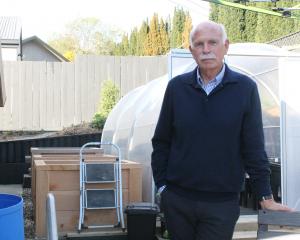
The council chief executive also says the work needed to meet new requirements will be a significant drain on resources.
At a meeting on Wednesday, the Otago Regional Council's policy committee discussed how it would cope with changes announced in the past six months to national planning standards and national policy statements for highly productive land and urban development.
The changes have sparked fears the council will need to completely rewrite one of its overarching guiding documents, its regional policy statement, by 2022.
It has not finished fully implementing its last policy statement, which is caught up in High Court and Environment Court proceedings.
On top of this, the Government's Essential Freshwater Package will set a higher bar for several aspects of farming, wetlands and urban streams.
Council chief executive Sarah Gardner said the drain on council resources would be "significant".
Rewriting the policy statement was not budgeted for.
"I've asked staff to consider within the water framework what additional costs might be included in there
... in particular because we have a whole lot of new monitoring requirements for things that we don't currently do. There are a whole bunch of things we'll have to pick up."
Committee chairwoman Gretchen Robertson said rewriting a policy statement in two years was "actually impossible".
"We need to really see a clear picture as a region of what it is going to cost to do all this stuff and take it back to the Government and say `What is it you actually want us to be achieving in the regions?'
"For us to redo all our water is a massive amount of work and we need high-quality science."
Staff were feeling a "lot of pressure".
Council chairman Stephen Woodhead said the ORC needed clarity from the Government.
There were questions being asked which the Ministry for the Environment did not have answers to, he said.
"Give us the whole picture instead of this incremental picture every 18 months."
Ngai Tahu representative Edward Ellison said the news about the policy statement would be "quite significant" for affected communities.
Acting policy and planning manager Anita Dawe said the ORC did not fully know what was required to meet new national standards.
"We first need to understand how much of what we already have fits into the standard, identify any gaps and then develop the work programme to align."
Environment Southland policy and planning manager Lucy Hicks said its team was still assessing what impact, including costs, the policies would have on the council.
However, it was in a "good position" with its plan, she said.












